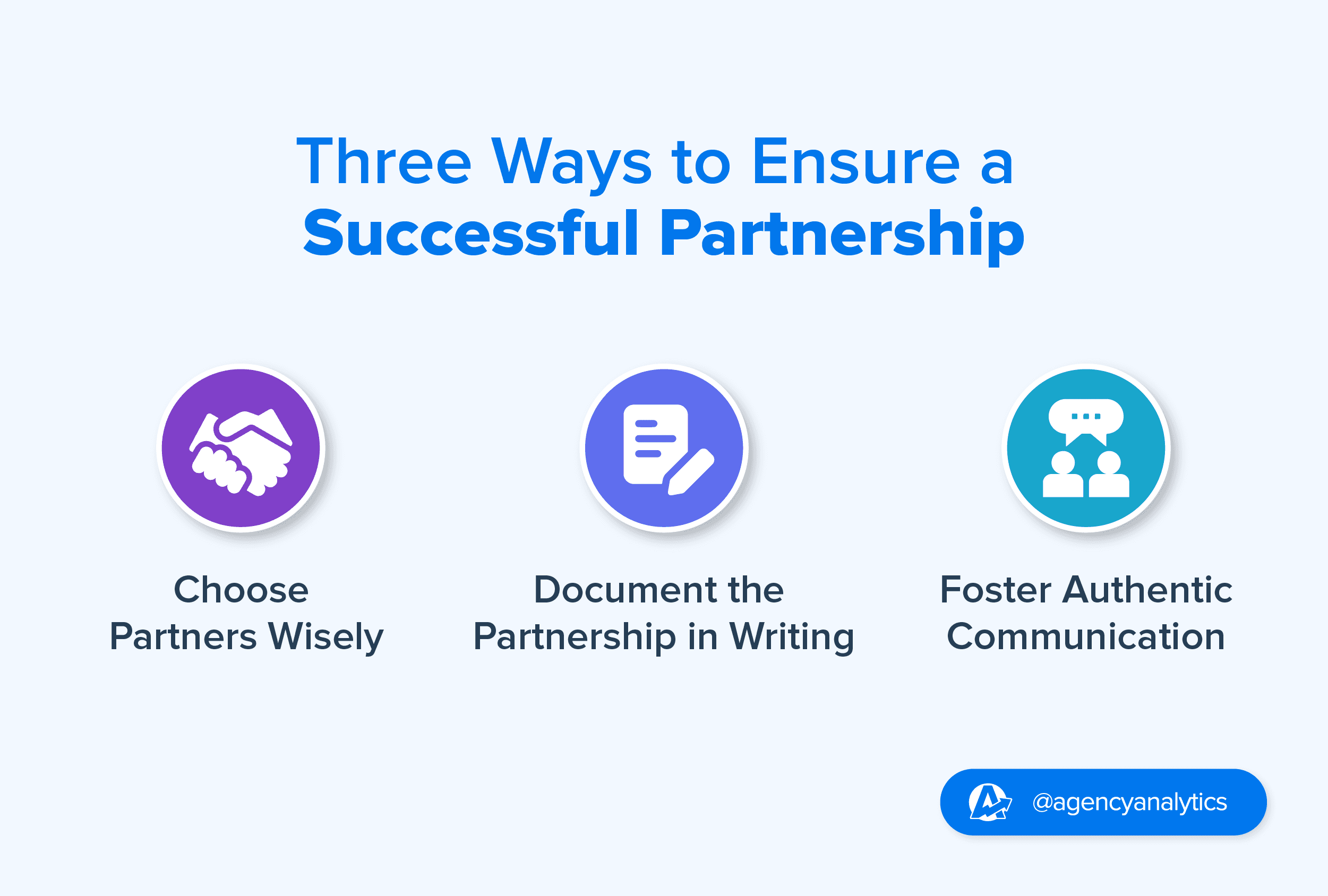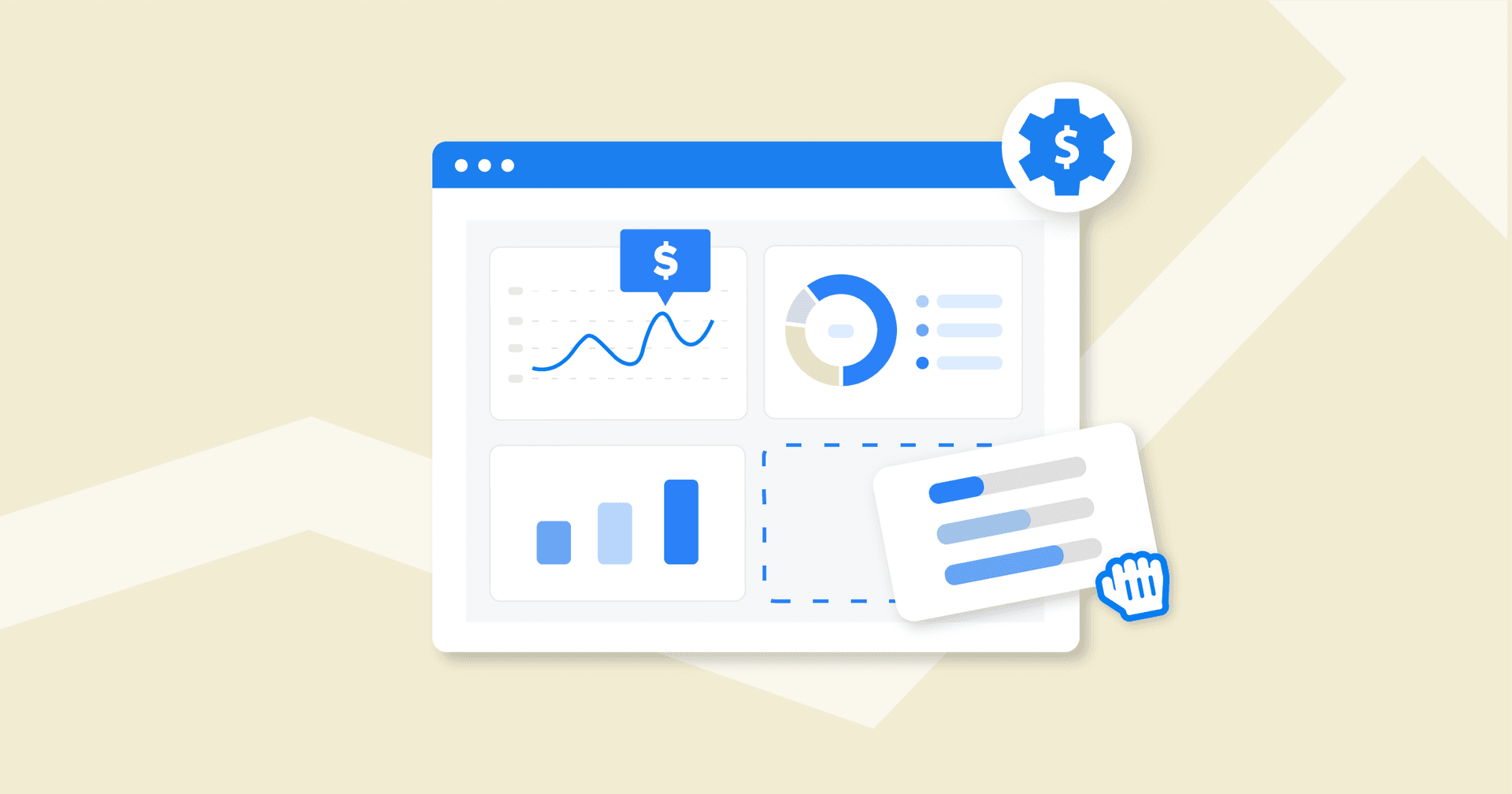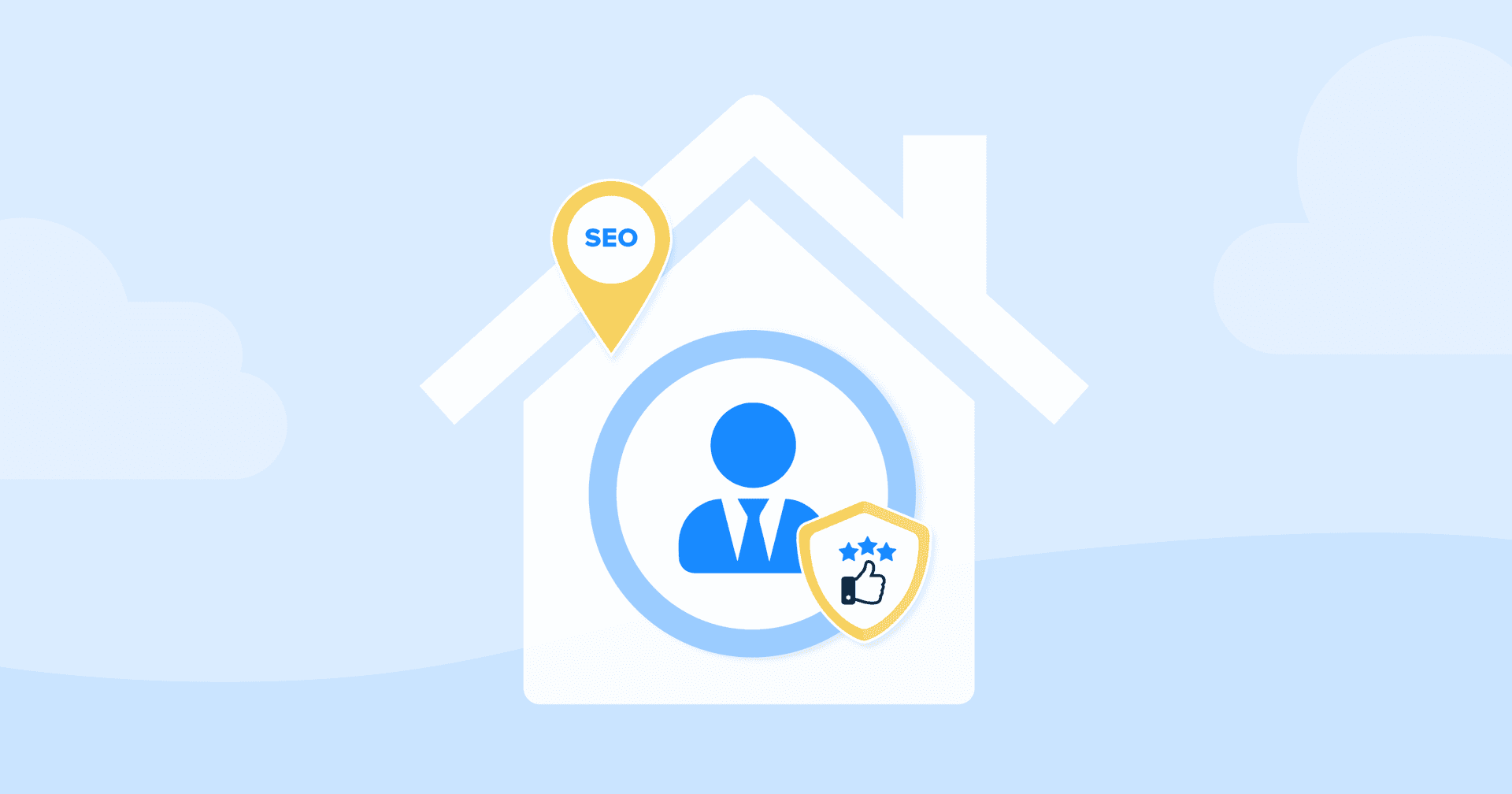Table of Contents
QUICK SUMMARY:
Marketing agency equity partnerships involve two or more parties owning a business to share resources, expertise, profits, and risks. Agency owner Nathan Hawkes has first-hand experience, showing it's possible to find like-minded partners to align with and boost growth.
Equity partnerships are a worthwhile strategy to boost your marketing agency’s growth. With these strategic alliances, you pool resources together, lean on each other for expertise and talent, and increase your ability to deliver better results to your clients.
Nathan Hawkes is no stranger to equity partnerships. His digital marketing agency, Arcane Marketing, stretched at one point to accommodate a leadership team of six equity partners before eventually streamlining back to a team of two.
Aligning with like-minded partners resulted in an impressive 140% jump in revenue, but the experience wasn’t without its challenges.
Having leveraged this strategy and experienced both the pros and the cons during his nearly two decades in the industry, today, Nathan is offering some advice for other agency leaders on how to form and maintain successful equity partnerships to reach your business goals.
What Is an Equity Partnership?
An equity partnership is when two or more parties come together to jointly own a marketing agency. In this arrangement, all partners work together toward common goals and share both the profits and losses of the company. It's like everyone's on the same boat, sailing in the same direction, and splitting the rewards and risks along the journey.
Consider this scenario:
You've got a small marketing agency, and you've been doing great work, but you've hit a growth plateau. By teaming up with another player in the field, you bring in more financial benefits and have access to their specialized skills. Partnering up with them helps you take on larger projects and expand your growth plans.
Running a marketing agency can be a rollercoaster ride, with unpredictable overhead costs and cash flow to manage. Having equity partners lets you share financial responsibilities and operational overheads, making it easier to weather the ups and downs. Plus, partnerships often open up doors to new clients and opportunities, thanks to the broader network and combined industry connections.
Pros and Cons of Equity Partnerships
If your agency is considering bringing on equity partners as a growth tactic, it’s important to thoroughly consider the pros and cons first. While this strategy has the potential to deliver exponential growth–as was the case for Arcane Marketing–it’s not right for every agency.
Pros of Equity Partnerships | Cons of Equity Partnerships |
|---|---|
New Services and Expertise | Legalities and Financial Aspects |
Expanding Potential New Client Pool | Structural Changes |
Instant Scalability | “Too Many Cooks in the Kitchen” |
The Pros of Equity Partnerships
1. New Services & Expertise
One of the major advantages of equity partnerships is the value that additional thought leaders bring to the table. For example, partnering with a video marketing expert could instantly provide your clients with access to a brand-new service, delivered by someone with proven expertise.
Offering new services to your clients benefits everyone involved: the client doesn’t need to hire multiple agencies for their marketing efforts and your agency brings in more income under one roof.
“These eyes all bring a unique perspective that I don't already have skills in,” says Nathan. “One partner we joined forces with was a social media specialist company and another one was a videography company.”
2. Expanding Potential New Client Pool
Bringing in new partners means getting more exposure and access to a new pool of contacts that are linked to them. Your agency gets to extend its client network and penetrate new markets you may not have reached on your own. Considering equity partnerships helps to boost your client acquisition and business growth strategies.
“There is no doubt that the other partners helped bring in more revenue to our agency through some of their business contacts,” Nathan shares. “Some had really good LinkedIn communities or they were a part of Facebook groups. So the exposure for our brand in those communities was a lot better.”
3. Instant Scalability
Another benefit of working with equity partners is the ability to fast-track your agency’s growth. Consider this scenario:
You work hard for ten years to land 100 new clients, or you partner with four companies totaling 100 clients, and gain those clients today.
Whether it’s in terms of their client base, complementary skills, reputation, or financial backing, equity partnerships offer rapid growth.
“You should look at giving up equity as an investment to grow the company,” says Nathan.
The Cons of Equity Partnerships
1. Legalities and Financial Aspects
Equity partnerships are a delicate endeavor involving legal implications and financial and operational complexities that need to be addressed up front.
It’s important to do your due diligence when considering an equity partnership and look into every detail. For example, researching your potential partner’s financial background, conflicts of interest, or any other legal obligations they may already have. It’s also a good idea to seek legal advice from experts who have knowledge and experience with business partnerships.
“You need to make sure that you document and put things into writing,” Nathan says. “It’s one of the reasons why I ended up not being an equity owner in the first agency I was part of.”
2. Structural Changes
Aside from legal and financial barriers, you also need to consider how your organizational chart will be impacted by a partnership. Such structural changes can be hard on your existing team members, especially when the reporting lines change.
While this fact shouldn’t be a deterrent, you’ll need to take the time to prepare the team for how any structural changes will impact their role, and clarify any questions and ambiguities that result.
“We all voted and decided who would have what position in EOS because that program offers an outlined structure for accountability,” Nathan shares. “You don’t have the right to come in and start throwing your opinion around. It has to be set up based on an organizational chart.”
3. “Too Many Cooks in the Kitchen” Leads to Analysis Paralysis
Having multiple decision makers at the agency is a difficult challenge. As more opinions are added to leadership meetings, it’s easy for conflicts to arise and bottlenecks to emerge. It’s crucial to strike a balance between thorough evaluation and timely action. Sometimes, taking calculated risks pays off, but you want to avoid over-complicating processes.
“It’s a lot easier to get two people on the same page versus six of us,” says Nathan. “And this is due to many facets and dynamics.”
Three Ways To Ensure a Successful Partnership
Here are the key takeaways from Nathan’s experience with agency partnerships at Arcane Marketing:

1. Choose Partners Wisely
An equity partnership should bring additional value that your agency doesn’t currently have. Choose partners that bring with them specific subject matter or industry experience, proven business acumen, an impressive financial track record, or a wide net of contacts your agency can leverage.
“The value they bring should help grow the entity big enough that it makes sense for me to give up five percent of my equity,” Nathan explains. “I won't miss that money because we've grown by that much, or more.”
While expertise is important, it should just be one of many factors considered when evaluating if someone is a good fit for an equity partnership. Think about it. Business needs change and evolve over time. What may be considered critical expertise today may no longer be relevant in the future.
“Just because somebody is a good performer, doesn’t mean they should be an equity partner,” Nathan explains. “You should look at giving up equity as an investment to grow the equity you already have.”
2. Document the Partnership in Writing
Misalignment in agency direction and growth goals leads to setbacks and uncomfortable conversations. To avoid this challenge, ensure you have clear documentation of your equity partnership. Understand the expectations of everyone up front and decide what the role looks like for each partner within the agency.
“Everything that you agree to should always be done in writing,” Nathan says. “Whether it's in an operating agreement or about what should happen in the future.
Documenting the partnership keeps all parties on track to achieve future goals, while also eliminating the potential for conflict over “who does what” when the going gets tough.
3. Foster Authentic Communication
When we asked Nathan about the most important lesson he has learned from his partnerships, his answer was simple.
“The one thing that trumps everything is real, authentic communication,” he says.
Nathan stresses the importance of getting to know your partners on an emotional level. This naturally builds trust because you both understand each other’s values and motivations and are more likely to share information transparently. Good communication leads to better decision-making and problem-solving in the long run.
“I spend as much, if not more time with my partner than I do with my wife,” Nathan admits. As in any relationship, taking the time to strengthen your communication skills mitigates the risk of crossed lines, petty resentments, and confusion derailing your agency’s progress during busy or difficult periods.
At the end of the day, knowing your partner on an emotional level strengthens the commitment to the business. It motivates both parties to work harder and stay dedicated to the mutual goals that you set out to achieve.
Create well-defined key performance indicators (KPIs) to measure your agency's growth goals in a marketing dashboard. Start your free 14-day trial today.
Summary & Key Takeaways
Navigating the world of equity partnerships is not just about the equity split but also about fostering trust, open communication, and a shared vision.
Whether you're just starting your first partnership or already managing multiple, equity partnerships are a worthwhile strategy to consider for boosting your agency’s growth potential.
As Nathan has shared, before signing on the dotted line, it's important to carefully consider the advantages and disadvantages and to take the right actions to ensure your partnership is a success in the long haul–for everyone involved.
For the complete story of Arcane Marketing's partnership journey, read their agency profile.

Written by
Richelle Peace is a writer with a degree in Journalism who focuses on web content, blog posts, and social media. She enjoys learning about different topics and sharing that knowledge with others. When she isn’t writing, Richelle spends time teaching yoga, where she combines mindfulness, movement, and her passion for wellness.
Read more posts by Richelle PeaceSee how 7,000+ marketing agencies help clients win
Free 14-day trial. No credit card required.






